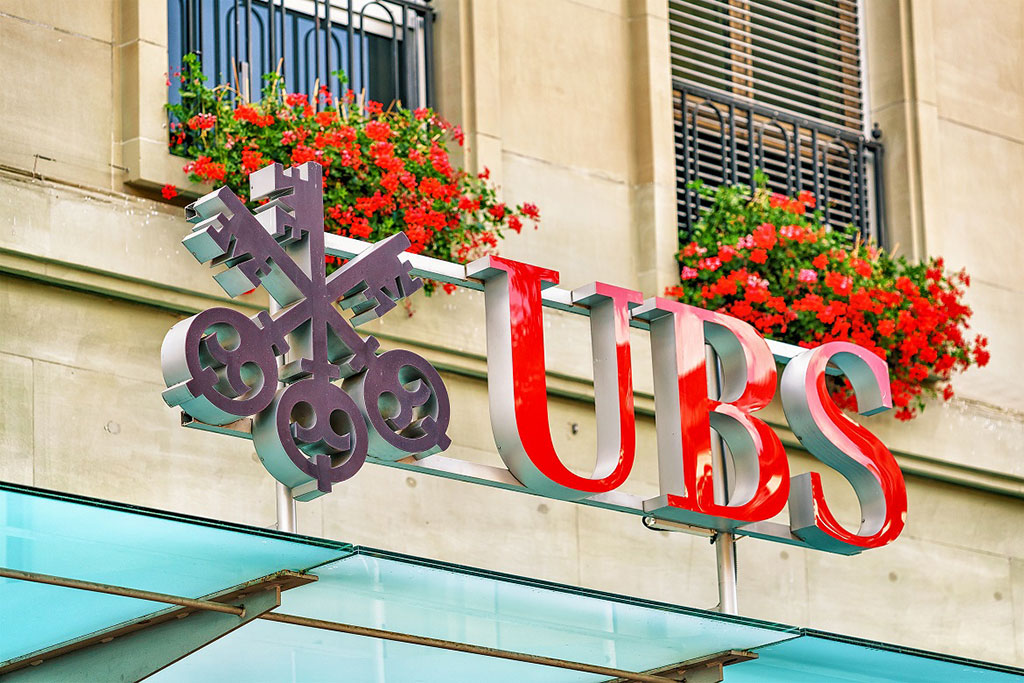
Swiss banking giant UBS completes proof-of-concept for its Key4 Gold service on zkSync, exploring blockchain integration for fractional gold investments and physical delivery options.

UBS is a Swiss global financial services company that serves over 50 countries.
UBS Group AG is a Swiss multinational investment bank and financial services company founded and based in Switzerland. Co-headquartered in the cities of Zürich and Basel, it maintains a presence in all major financial centers as the largest Swiss banking institution in the world. UBS client services are known for their strict bank–client confidentiality and culture of banking secrecy. The bank’s large positions in the Americas, EMEA, and Asia Pacific markets make it a systemically important financial institution within the European Union, and to a lesser extent, the broader economy of Europe.
UBS was founded in 1862 as the Bank in Winterthur alongside the advent of the Swiss banking industry. During the 1890s, the Swiss Bank Corporation (SBC) was founded, forming a private banking syndicate that expanded aided by Switzerland’s international neutrality. The Bank of Winterthur merged with Toggenburger Bank in 1912 to form the Union Bank of Switzerland (UBS) and grew rapidly after the Banking Law of 1934 codified Swiss banking secrecy. Following decades of market competition between the SBC and UBS, the two merged in 1998 to create a single company known solely as “UBS”. During the early 2000s, the commensurate rise of UBS and Credit Suisse established a legally-sanctioned oligopoly on Swiss private market activity. After UBS managed heavy losses during the 2008 financial crisis with an asset relief recovery program, it was hit with the 2011 rogue trader scandal resulting in a US$2 billion trading loss. In 2012 the bank reoriented itself around wealth management and limited its sell side operations.
Apart from private banking, UBS provides wealth management, asset management, and investment banking services for private, corporate, and institutional clients with international service. UBS manages the largest amount of private wealth in the world, counting approximately half of the world’s billionaires among its clients. Despite its trimming of sell side operations, UBS is among the world’s nine “Bulge Bracket” investment banks and is considered a global primary market maker. The bank also maintains numerous underground bank vaults, bunkers, and storage facilities for gold bars around the Swiss Alps and internationally. Partly due to its banking secrecy, it has been at the center of numerous tax avoidance investigations undertaken by U.S., French, German, Israeli, and Belgian authorities. UBS operations in Switzerland and the United States were respectively ranked first and second on the 2018 Financial Secrecy Index.
As of 2017, UBS is the 11th largest bank in Europe with a market capitalization of $64.5 billion. It has over CHF 3.2 trillion in assets under management (AUM), approximately CHF 2.8 trillion of which are invested assets. In June 2017, its return on invested capitalwas 11.1%, followed by Goldman Sachs’ 9.5%, and JPMorgan Chase’s 9.2%. In late 2016, UBS established a blockchain technologyresearch lab in London to advance its cyber security and encryption of client activities. Based on regional deal flow and political influence, UBS is considered one of the “biggest, most powerful financial institutions in the world”. The company’s capital strength, security protocols, and reputation for discretion has yielded a substantial market share in banking and high level of brand loyalty. Alternatively, it receives routine criticism for facilitating tax noncompliance and off-shore financing.

Swiss banking giant UBS completes proof-of-concept for its Key4 Gold service on zkSync, exploring blockchain integration for fractional gold investments and physical delivery options.

Hong Kong proposes tax exemptions on crypto gains, private credit, and carbon credits to attract elite investors.

The Chainlink ecosystem has grown in the past few years backed by reputable Web3 companies and financial institutions seeking to offer scalable smart contracts.